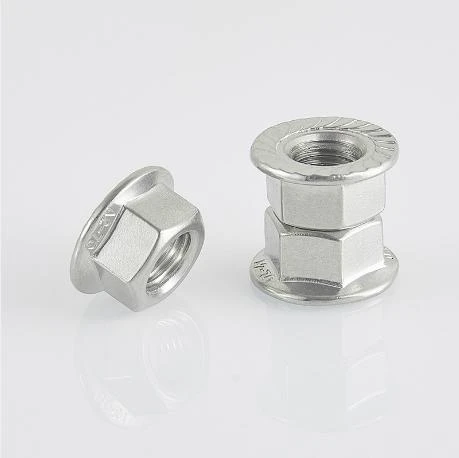

Exploring Various Materials Used in Fasteners for Enhanced Performance and Durability
Dec . 05, 2024 04:38 Back to list
Exploring Various Materials Used in Fasteners for Enhanced Performance and Durability
Understanding Fastener Materials A Key to Strength and Durability
Fasteners are essential components in a myriad of applications, acting as the building blocks that hold structures, machinery, and everyday products together. From nuts and bolts to screws and rivets, the material used in fasteners plays a critical role in their performance, durability, and suitability for specific tasks. In this article, we will explore various fastener materials, their properties, applications, and the factors that influence the choice of material.
Common Fastener Materials
1. Steel Steel is the most widely used material for fasteners due to its strength, durability, and versatility. Carbon steel fasteners offer excellent tensile strength and can be coated with zinc or other finishes to prevent corrosion. Stainless steel, an alloy with chromium, provides additional resistance to rust and corrosion, making it ideal for applications in harsh environments, such as marine or chemical sectors.
2. Aluminum Aluminum fasteners are lightweight and have excellent corrosion resistance, making them suitable for applications where weight reduction is crucial, such as in the aerospace and automotive industries. Although they are not as strong as steel, aluminum fasteners can still provide adequate strength for many applications, and their non-magnetic properties are advantageous in certain electrical applications.
3. Plastic Plastic fasteners are increasingly popular due to their lightweight nature and resistance to corrosion and electrical conductivity. They are often used in electronics, household items, and automotive applications where metal fasteners may cause short circuits or add unnecessary weight. However, plastic fasteners may not provide the same level of mechanical strength as metal counterparts and are best suited for low-stress applications.
4. Titanium Titanium fasteners offer a perfect balance of strength, weight, and corrosion resistance, making them ideal for high-performance applications, including aerospace, medical devices, and high-end automotive sectors. Although more expensive than other materials, the benefits of titanium in weight-sensitive and corrosive environments can justify the cost.
5. Brass Brass fasteners, made from a mixture of copper and zinc, are known for their excellent corrosion resistance and aesthetic appeal. They are commonly used in plumbing applications, electrical components, and decorative hardware. However, brass fasteners may not provide the same level of mechanical strength as steel.
Factors Influencing Material Selection
fastener material

When choosing the right material for fasteners, several factors come into play
- Environment The operating environment significantly influences material selection. For example, fasteners used in marine or chemical environments must resist corrosion and might require materials like stainless steel or specialized coatings.
- Strength Requirements The required tensile and shear strength often dictate the choice of material. Heavy-duty applications, such as construction and heavy machinery, typically require stronger materials like carbon steel, while lighter applications may benefit from aluminum or plastic.
- Weight Considerations In industries like aerospace and automotive, weight reduction is critical. Here, lightweight materials like aluminum and titanium are often preferred, despite their higher costs.
- Cost The budget for a project can greatly influence material choice. While high-performance materials such as titanium may provide advantages, more economical options like carbon steel or plastic are often sufficient for less demanding applications.
- Aesthetic Requirements In decorative applications, the appearance of the fastener may be just as important as its functionality. Materials like brass provide both strength and visual appeal.
Conclusion
Understanding fastener materials is crucial for achieving optimal performance in various applications. The choice of material depends on several factors, including the environment, strength requirements, weight considerations, cost, and aesthetic needs. By carefully evaluating these elements, engineers and designers can select the best fastener material to ensure that their projects are not only functional but also safe and durable. As technology advances, the development of new materials and coatings will continue to enhance the performance and application range of fasteners, further solidifying their importance in countless industries.
Latest news
-
Hot Dip Galvanized Bolts-About LongZe|High Strength, Corrosion Resistance
NewsJul.30,2025
-
High-Strength Hot Dip Galvanized Bolts - Hebei Longze | Corrosion Resistance, Customization
NewsJul.30,2025
-
Hot Dip Galvanized Bolts-Hebei Longze|Corrosion Resistance&High Strength
NewsJul.30,2025
-
High-Strength Hot-Dip Galvanized Bolts-Hebei Longze|Corrosion Resistance&High Strength
NewsJul.30,2025
-
Hot Dip Galvanized Bolts-Hebei Longze|Corrosion Resistance&High Strength
NewsJul.30,2025
-
Hot Dip Galvanized Bolts - Hebei Longze | Corrosion Resistance, High Strength
NewsJul.30,2025

